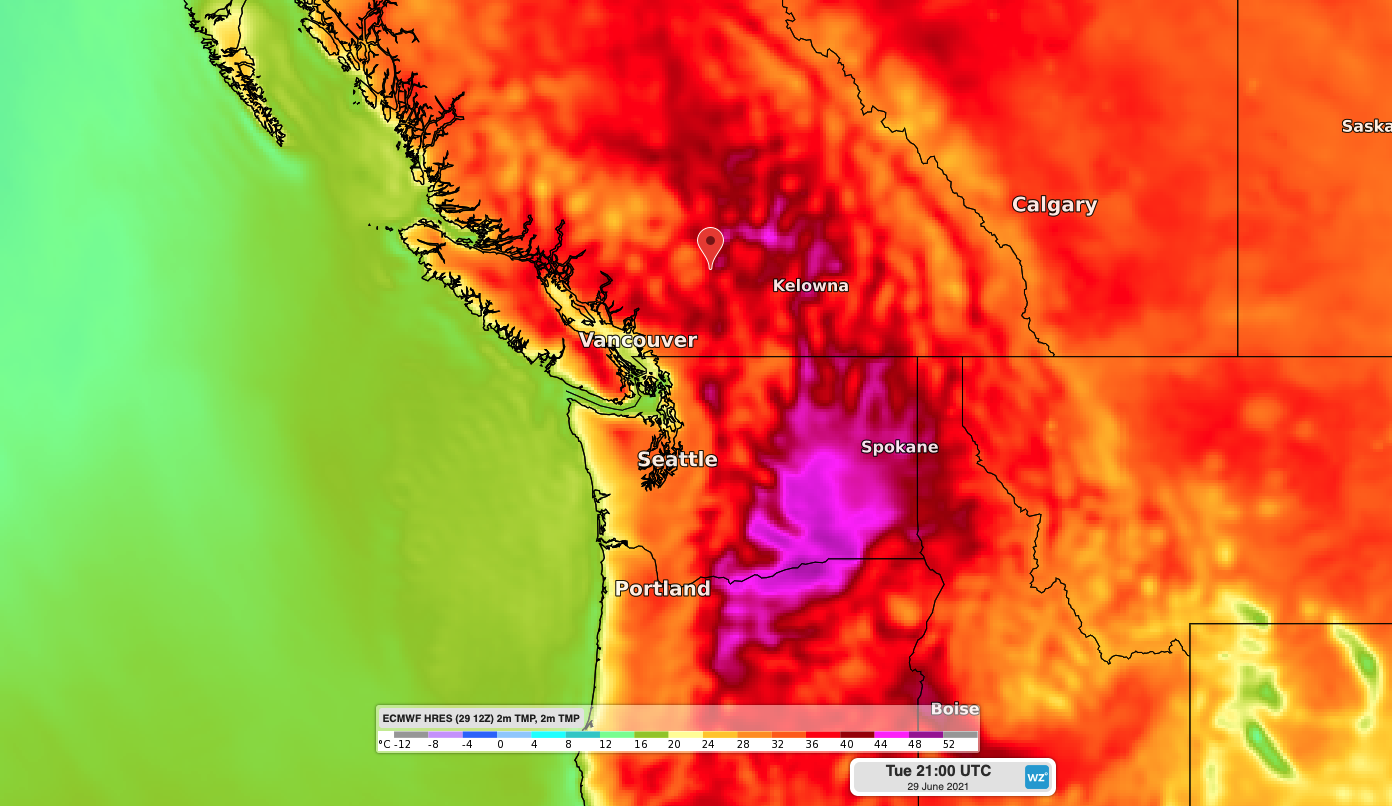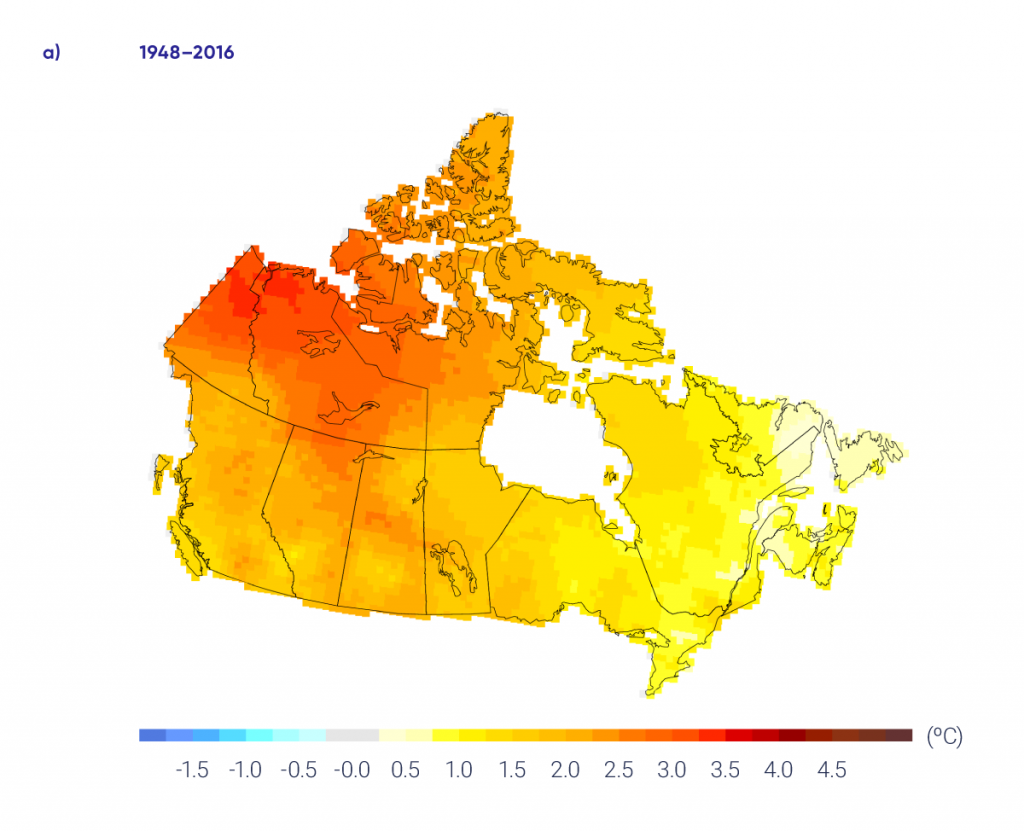Relentless heat obliterates Canadian record for 3rd straight day
Western Canada is in the grip of a record-breaking heatwave that has just shattered the country's all-time maximum temperature record for the third day in a row.
Prior to last weekend, Canada's highest temperature on record was 45.0ºC from Yellow Grass and Midale back on July 5, 1937. This week, that mark has been blasted by nearly 5ºC.
A weather station located at Lytton in British Columbia reached 49.6ºC on Tuesday, June 29. If verified, this will be the highest temperature ever recorded in Canada, surpassing the short-lived records of 46.6ºC and 47.9ºC that were set at the same location on Sunday and Monday, respectively.

Image: Modelled surface temperature over Western Canada and the Northwest US on Tuesday. The location of Lytton is shown by the red marker.
To put this into perspective for Australia, the highest temperature ever recorded in a suburb of one of our capital cities was 48.9ºC at Penrith (Western Sydney) in January 2020. In fact, only three Australian states or territories have registered temperatures higher than Lytton's 49.6ºC, and Australia's highest temperature on record – a searing 50.7ºC at Oodnadatta, SA in January, 1960 – is only 1.1ºC higher than Lytton's historic heat.
But can a temperature that's nearly 5ºC higher than anything previously recorded in Canada be trusted? After all, national temperature records are usually broken by fractions of a degree.
According to a spokesperson from Environment Canada, the thermometer from this weather station will be sent for official validation after this event. This is common practice when unprecedented temperatures are observed.
But for now, the record appears to be believable based on temperature observations from surrounding weather stations and in-situ site assessments during this heatwave by experienced meteorologists.
Another feature that makes Lytton's heat record so remarkable is how close to the north pole it is. The town sits at a latitude of 50.23º North. If this were in the Southern Hemisphere, it would be about one third of the way between Tasmania and Antarctica.
Another all-time Canada record today. Lytton, British Columbia, was 49.6°C (121°F) this afternoon. Here's a map of station in the U.S. and Canada that have ever been as warm as Lytton was today. pic.twitter.com/cdMTINz4m0
— Brian Brettschneider (@Climatologist49) June 29, 2021
Canada's proximity to the Arctic Circle also caused a massive temperature range across the country on Tuesday. The difference between the day's top reading of 49.6ºC at Lytton and a low of -1.3ºC at Puvirnituq and Akulivik Airports produced a daily natiopnal temperature range of 50.9ºC.
What's causing the heat?
This record-breaking heatwave is being caused by a bend in one of the Northern Hemisphere's jet streams, which has created a 'heat dome' beneath a near-stationary ridge of high pressure over western Canada.
In addition to this weather setup, climate change is also likely to be playing a hand in the magnitude of this heatwave.
According to the World Meteorological Organization's latest State of the Climate report, the global mean temperature in 2020 was 1.2ºC above the 1850-1900 baseline.
But Canada's annual mean temperature has warmed at roughly twice the rate of the global mean temperature in the last 70 years.
Looking at the period from 1948 to 2016, Canada's annual mean temperature increased by about 1.7ºC. Over the same period, the global mean temperature rose by around 0.8ºC, according to the Met Office's HadCRUT4 dataset.

Image: Observed changes (°C) in annual temperature between 1948 and 2016. Source: Canada's Changing Climate Report 2019
And as annual mean temperatures climb, so too does the likelihood of extreme heat events.
Canada's highest nationally-averaged annual daily maximum temperature increased by about 0.61ºC between 1948 and 2016.
According to Environment and Climate Change Canada (ECCC), "most of the observed increase in the coldest and warmest daily temperatures of the year in Canada from 1948 to 2012 can be attributed to anthropogenic influence."